Ditapis dengan
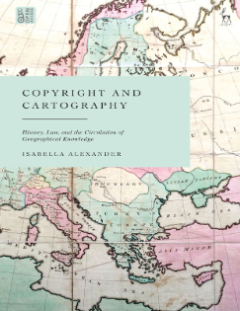
Copyright and Cartography: History, Law, and the Circulation of Geographical …
This open access book explores the intertwined histories of mapmaking and copyright law in Britain from the early modern period up to World War 1, focusing chiefly on the 18th and 19th centuries. Taking a multidisciplinary approach and making extensive use of the archival record, this is the first detailed, historical account of the relationship between maps and copyright. As such, it examines …
- Edisi
- -
- ISBN/ISSN
- 978-1-50995-835-1
- Deskripsi Fisik
- 416 hlm.
- Judul Seri
- -
- No. Panggil
- -
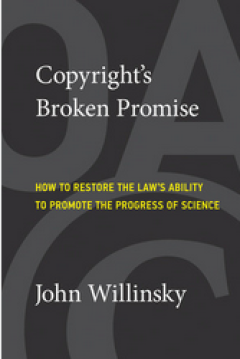
Copyright's Broken Promise: How to Restore the Law's Ability to Promote the P…
A comprehensive proposal for reforming copyright law to ensure sustainable public access to research and scholarship. Open access is widely supported by researchers, librarians, scholarly societies, and research funders, as well as large and small publishers. Yet despite this support—and the pandemic's demonstration of the importance of open access for scientific progress—the scholarly publ…
- Edisi
- -
- ISBN/ISSN
- 978-0-262-37148-3
- Deskripsi Fisik
- 189 hlm.
- Judul Seri
- -
- No. Panggil
- -
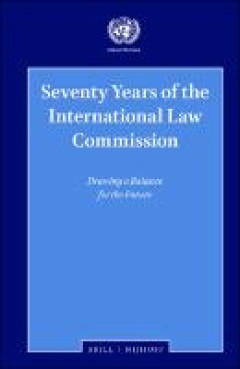
Seventy Years of the International Law Commission: Drawing a Balance for the …
This book brings together voices from academia and practice to celebrate and critically evaluate the work of the United Nations International Law Commission (ILC) over the past seventy years. The edited volume draws on the events commemorating the seventieth anniversary of the Commission, which took place in New York and Geneva in May and July 2018. At a time when multilateral law-making has be…
- Edisi
- -
- ISBN/ISSN
- 978-90-04-43427-1
- Deskripsi Fisik
- 475 hlm.
- Judul Seri
- -
- No. Panggil
- -

EU Competition Litigation: Transposition and First Experiences of the New Regime
All EU Member States have now transposed Directive 2014/104/EU on damages actions for breaches of competition law into national law. The Directive (and the soft-law instruments accompanying it) not only marks a new phase for private enforcement of competition law but also, more generally, provides a novel and thought provoking instance of EU harmonisation of aspects of private law and civil lit…
- Edisi
- -
- ISBN/ISSN
- 978-1-50992-203-1
- Deskripsi Fisik
- 271 hlm.
- Judul Seri
- -
- No. Panggil
- -
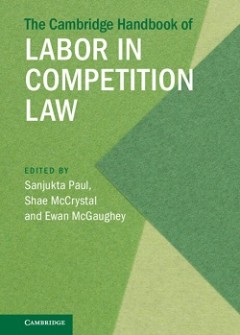
The Cambridge Handbook of Labor in Competition Law
As scholars and policymakers around the world seek a systematic approach to the question of 'gig work,' one of its regulatory dimensions – the intersection of labor and competition law – points toward a deeper reconceptualization of the conventional legal and economic categories typically brought to bear upon it. A comparative approach to the question of gig work further reveals the variety…
- Edisi
- -
- ISBN/ISSN
- 978-1-108-90957-0
- Deskripsi Fisik
- 333 hlm.
- Judul Seri
- -
- No. Panggil
- -
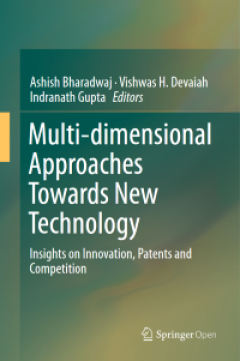
Multi-dimensional Approaches Towards New Technology: Insights on Innovation, …
This book captures the complexities and conflicts arising at the interface of intellectual property rights (IPR) and competition law. To do so, it discusses four specific themes: (a) policies governing functioning of standard setting organizations (SSOs), transparency and incentivising future innovation; (b) issue of royalties for standard essential patents (SEPs) and related disputes; (c) due …
- Edisi
- -
- ISBN/ISSN
- 978-981-13-1232-8
- Deskripsi Fisik
- 350 hlm.
- Judul Seri
- -
- No. Panggil
- -

The Future of Asian Trade Deals and IP
The first part of this open access book sets out to re-examine some basic principles of trade negotiation, such as choosing the right representatives to negotiate and enhancing transparency as a cure to the public’s distrust against trade talks. Moreover, it analyses how the Comprehensive and Progressive Agreement for the Trans-Pacific Partnership (CPTPP) might impact on the Regional Comprehe…
- Edisi
- -
- ISBN/ISSN
- 978-1-50992-278-9
- Deskripsi Fisik
- 317 hlm.
- Judul Seri
- -
- No. Panggil
- -

Body Law and the Body of Law: A Comparative Study of Social Norm Inclusion in…
Christine M. Hassenstab investigates how laws on sterilization, birth control and abortion were created, by focusing on the act of legislation; how the law was driven by scientific and social norms during the first and closing decades of the 20th century in the USA (especially in the state of Indiana) and Norway. The primary focus of Body Law and the Body of Law is the sociology of law and how …
- Edisi
- -
- ISBN/ISSN
- 978-3-11-041277-2
- Deskripsi Fisik
- 362 hlm.
- Judul Seri
- -
- No. Panggil
- -

Combining the Legal and the Social in Sociology of Law: An Homage to Reza Ban…
This book pays homage to Reza Banakar, who passed away in August 2020, exploring the many different areas of socio-legal research that he worked on and influenced. It begins with a summary of his career and explains how he sparked a debate on the identity and aims of legal sociology. The book is then split into 5 sections: - Theory, including chapters on normativity and the stepchild controvers…
- Edisi
- -
- ISBN/ISSN
- 978-1-50995-940-2
- Deskripsi Fisik
- 495 hlm.
- Judul Seri
- -
- No. Panggil
- -
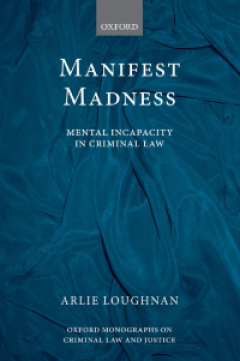
Manifest Madness: Mental Incapacity in the Criminal Law
Whether it is a question of the age below which a child cannot be held liable for their actions, or the attribution of responsibility to defendants with mental illnesses, mental incapacity is a central concern for legal actors, policy makers, and legislators when it comes to crime and justice. Understanding the terrain of mental incapacity in criminal law is notoriously difficult; it involves t…
- Edisi
- -
- ISBN/ISSN
- 978-0-19-969859-2
- Deskripsi Fisik
- 307 hlm.
- Judul Seri
- -
- No. Panggil
- -
 Karya Umum
Karya Umum  Filsafat
Filsafat  Agama
Agama  Ilmu-ilmu Sosial
Ilmu-ilmu Sosial  Bahasa
Bahasa  Ilmu-ilmu Murni
Ilmu-ilmu Murni  Ilmu-ilmu Terapan
Ilmu-ilmu Terapan  Kesenian, Hiburan, dan Olahraga
Kesenian, Hiburan, dan Olahraga  Kesusastraan
Kesusastraan  Geografi dan Sejarah
Geografi dan Sejarah